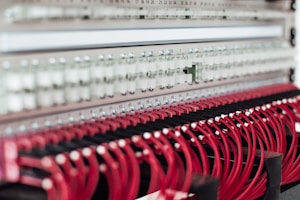An efficient system is capable of processing information accurately and doing this safely for the users’ sake. Modern information systems are designed to allow and facilitate the flow of information through them without causing information build-ups and blockages of these systems. The systems’ designs also encourage a flow of information that provides for more efficient usage of the information without holding on to any piece of information for too long. This is why these systems are known to be more efficient and can handle any amount of information without losing track of any of the records.
A system that provides for an efficient flow of information is better equipped to process the information and pass back results to the information system users. This all happens in real-time. No matter the amount of information that the system is required to take care of in any single instance, the seamless flow of information will ensure that the system is at an optimum state of operation and promptly provides results back to the users.
The modern information systems are also designed to use bandwidth and other resources that network them to the client systems to ensure there are no delays in relaying back results to the users. This efficient use of the network resources and the information capacity of the information systems make it possible for the users of these systems to make better use of them and process a lot more information than could be possible with limited systems that cannot enable the free flow of information through the systems.
An efficient system can also handle the incoming information more securely by scanning it in time to prevent malware from getting into the information system. While the information is flowing in, it is also categorized to ensure that the correct applications are processing the information or traffic headed to it.
The users of modern information systems require applications that perform to their tastes and meet their requirements and specifications, such as handling a certain number of customers at a time. This is the reason modern information systems have been designed to handle a lot more information as the number of customers tend to grow unpredictably, and the smooth flow of information in the system makes it possible for the system to process it in good time and deliver the best results down to the customers and users of the applications.
In conclusion, modern information systems have been designed not to restrict information flow as this tends to make the application and the system itself inefficient. Blockages in the flow of information through these systems make them perform at a less than expected level. Thus, modern systems should process information flowing through the system at an acceptable rate. The customers do not have to wait for long before getting back the results they are looking for, and this calls for systems that have a better flow of information in them.









